In the expansive world of transportation and logistics, few vehicles are as indispensable as the semi truck. At CarMax Vehicle, we recognize the pivotal role semi trucks play in ensuring goods move seamlessly across continents, powering economies, and connecting communities. This comprehensive guide delves into the intricacies of semi trucks, exploring their components, types, uses, and the advantages they offer. Whether you’re a logistics professional, an aspiring truck driver, or simply curious about these giants of the road, this article provides an in-depth look into what makes semi trucks essential in today’s dynamic marketplace.
What is a Semi Truck?
A semi truck, often referred to as a tractor-trailer, big rig, or 18-wheeler, is a combination of a tractor unit and one or more trailers to transport goods over long distances. The term “semi” denotes the fact that the trailer lacks a front axle and is thus supported by the tractor. This design allows for greater flexibility and efficiency in hauling various types of cargo, from perishable food items to oversized machinery.
Components of a Semi Truck
Understanding the anatomy of a semi truck is crucial to appreciating its functionality and versatility. Here, we break down the primary components that constitute these powerful vehicles:
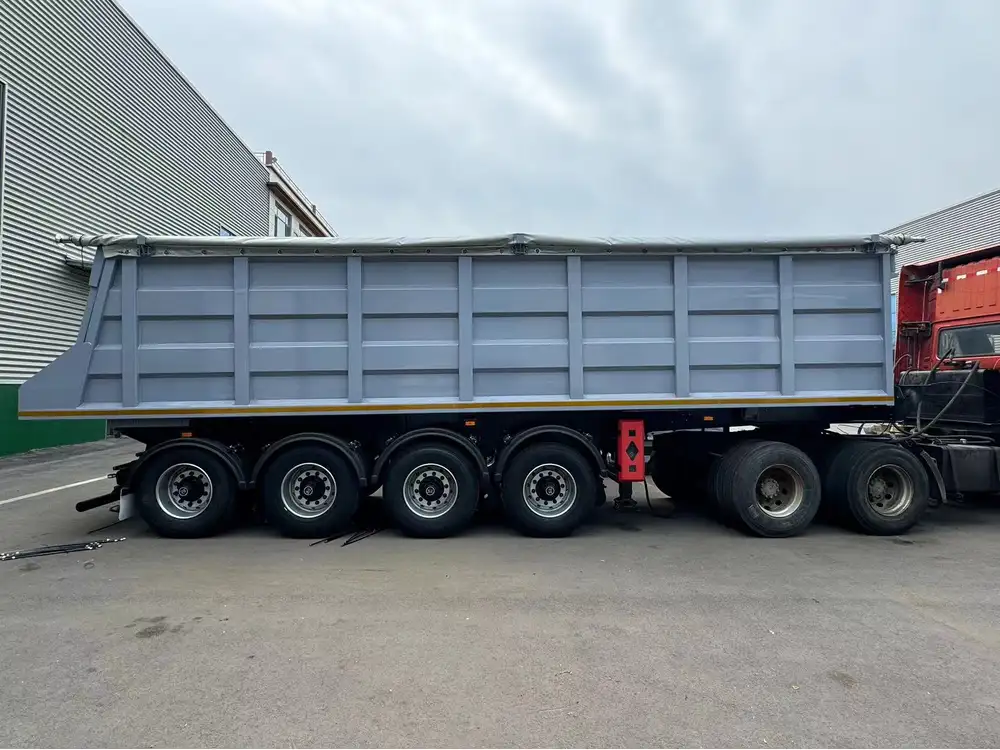
1. Tractor Unit
The tractor, also known as the power unit, is the engine of the semi truck. It contains the engine, transmission, and the cab where the driver operates the vehicle. Key features include:
- Engine: Typically a heavy-duty diesel engine ranging from 400 to 600 horsepower, designed for sustained high performance.
- Transmission: Multi-speed gearboxes, often with automated or manual shifting, to manage power distribution efficiently.
- Cab: Ergonomically designed to provide comfort during long hauls, equipped with modern amenities and advanced driver-assistance systems.
2. Trailer
The trailer is the insulated container attached to the tractor, responsible for carrying the cargo. There are various types of trailers, each tailored to specific transportation needs:
- Dry Van: Enclosed trailers ideal for transporting non-perishable goods protected from the elements.
- Refrigerated Trailer (Reefer): Equipped with refrigeration units to transport perishable items like food and pharmaceuticals.
- Flatbed: Open trailers suited for bulky or oversized cargo that doesn’t require enclosure.
- Tankers: Designed to carry liquids or gases, such as fuel, chemicals, or water.
3. Coupling Systems
Coupling mechanisms connect the tractor and trailer, ensuring a secure and stable attachment. Common coupling systems include the fifth wheel hitch, which allows for easy coupling and uncoupling of trailers.

4. Axles and Wheels
Semi trucks typically feature multiple axles and wheels to distribute weight evenly and provide stability. The configuration can vary based on the truck’s intended use and load capacity.
5. Brake Systems
Advanced braking systems, including air brakes, are crucial for managing the massive weight of the semi truck and its cargo. These systems ensure safe and efficient stopping power under various conditions.
Types of Semi Trucks
The versatility of semi trucks is reflected in the variety of configurations available to meet different transportation needs. Here’s a closer look at the most common types:
| Type | Description | Common Uses |
|---|---|---|
| Dry Van | Enclosed trailer without temperature control. | General freight, consumer goods |
| Refrigerated (Reefer) | Temperature-controlled trailer for perishable items. | Food, pharmaceuticals, perishables |
| Flatbed | Open trailer with no sides or roof. | Construction materials, machinery, oversized loads |
| Tankers | Cylindrical trailers designed to carry liquids or gases. | Fuel, chemicals, water |
| Lowboy | Trailer with a low deck to transport heavy machinery and tall loads. | Industrial equipment, construction |
| Step Deck | Combines features of flatbed and lowboy for versatile cargo transportation. | Heavy machinery, equipment |
| Double/Triple Trailers | Multiple trailers attached to a single tractor for increased cargo capacity. | Bulk goods, large volume shipments |

Uses of Semi Trucks
Semi trucks are integral to numerous sectors, facilitating the movement of a wide array of goods. Here are some of the primary industries relying on semi trucks:
1. Retail and E-commerce
With the rise of online shopping, the demand for efficient delivery systems has surged. Semi trucks transport goods from warehouses to distribution centers, ensuring timely delivery to consumers.
2. Manufacturing
Manufacturers depend on semi trucks to receive raw materials and distribute finished products to various markets, maintaining the flow of production and supply chains.
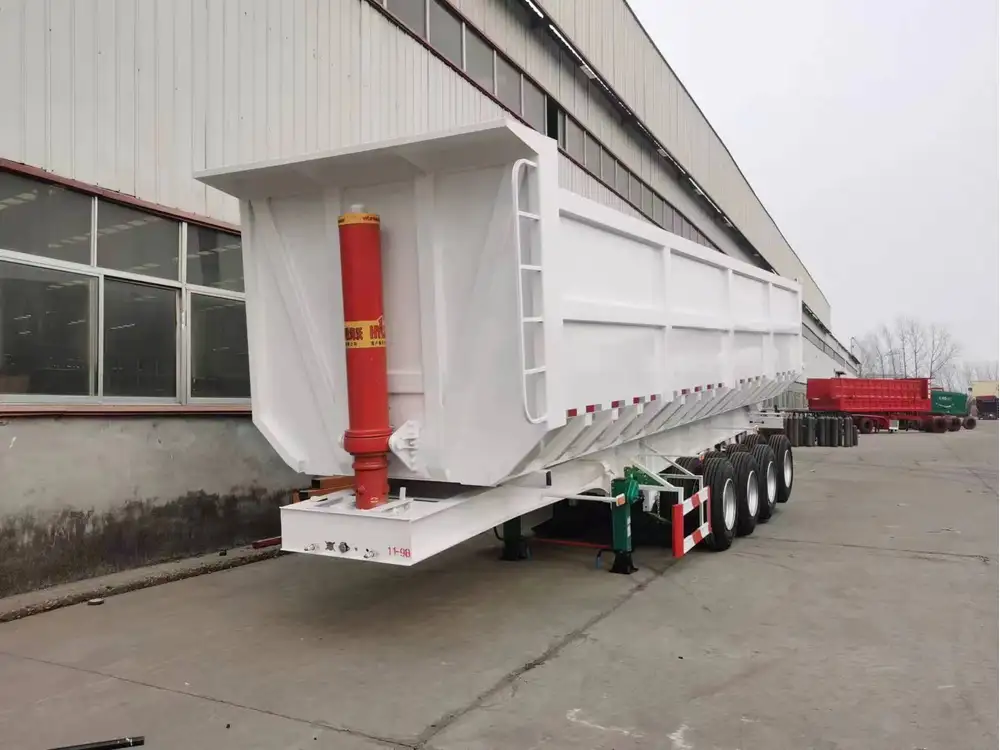
3. Agriculture
From transporting harvested crops to delivering farming equipment, semi trucks play a vital role in supporting the agricultural sector.
4. Construction
Construction projects require the movement of heavy machinery, building materials, and supplies, all of which are efficiently handled by semi trucks.
5. Energy and Utilities
Semi trucks transport essential supplies and equipment for the energy sector, including materials for power plants, renewable energy installations, and utility maintenance.

6. Healthcare
Medical supplies, pharmaceuticals, and equipment are transported via semi trucks, ensuring that hospitals and clinics are well-stocked and operational.
Advantages of Using Semi Trucks
Semi trucks offer numerous benefits that make them the preferred choice for long-distance and heavy-duty transportation. Here are some key advantages:
1. Capacity and Efficiency
Semi trucks can haul large volumes of goods in a single trip, reducing the number of vehicles needed and enhancing overall logistical efficiency.

2. Flexibility
With various trailer types available, semi trucks can transport a wide range of cargo, from standard pallets to oversized machinery, accommodating diverse transportation needs.
3. Cost-Effectiveness
By consolidating shipments and minimizing the number of trips required, semi trucks help reduce transportation costs, making them a cost-effective solution for businesses.
4. Reliability
Modern semi trucks are equipped with advanced engineering and technology, ensuring reliable performance even under demanding conditions.

5. Accessibility
Semi trucks can navigate a variety of terrains and infrastructures, allowing them to reach remote or difficult-to-access locations that other forms of transportation might struggle with.
6. Environmental Efficiency
With improvements in engine technology and aerodynamics, semi trucks have become more fuel-efficient, reducing their environmental footprint compared to older models.
Engineering Excellence: CarMax Vehicle’s Commitment
At CarMax Vehicle, our expertise in manufacturing semi trailers is unmatched. We prioritize innovation, durability, and efficiency in every trailer we produce. Here’s why CarMax Trailer stands out in the competitive landscape:

Superior Build Quality
Our trailers are constructed using high-grade materials, ensuring longevity and resistance to wear and tear. The robust build allows our trailers to handle the most demanding loads with ease.
Customization Options
We understand that each client has unique needs. CarMax Trailer offers a range of customization options, from size and configuration to specialized features like reinforced floors or custom refrigeration units.
Advanced Technology Integration
Incorporating the latest technology, our trailers are equipped with features such as GPS tracking, telematics systems, and automated braking, enhancing safety and operational efficiency.
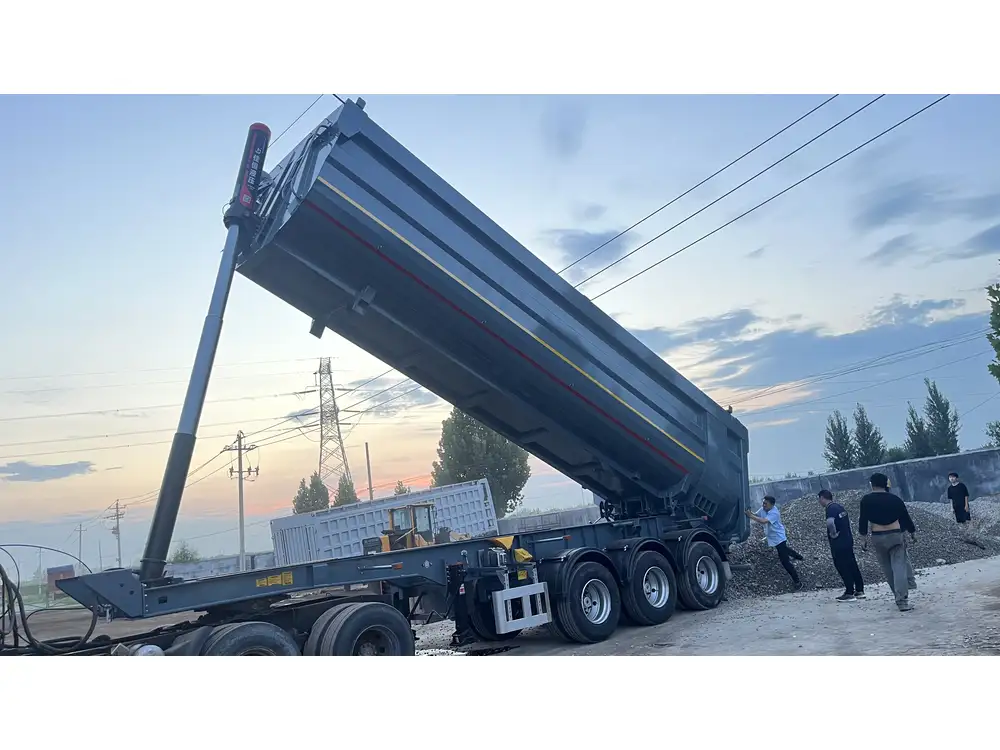
Sustainability Focus
CarMax Vehicle is committed to sustainable practices. Our trailers are designed for fuel efficiency and reduced emissions, aligning with global efforts to promote eco-friendly transportation solutions.
Exceptional Support and Service
We offer comprehensive support, from initial consultation and design to after-sales service and maintenance. Our dedicated team ensures that clients receive the best possible experience with CarMax Trailer products.
Choosing the Right Semi Trailer: A Step-by-Step Guide
Selecting the appropriate semi trailer is crucial for optimizing transportation efficiency and ensuring the safety of your cargo. Here’s a step-by-step guide to help you make an informed decision:
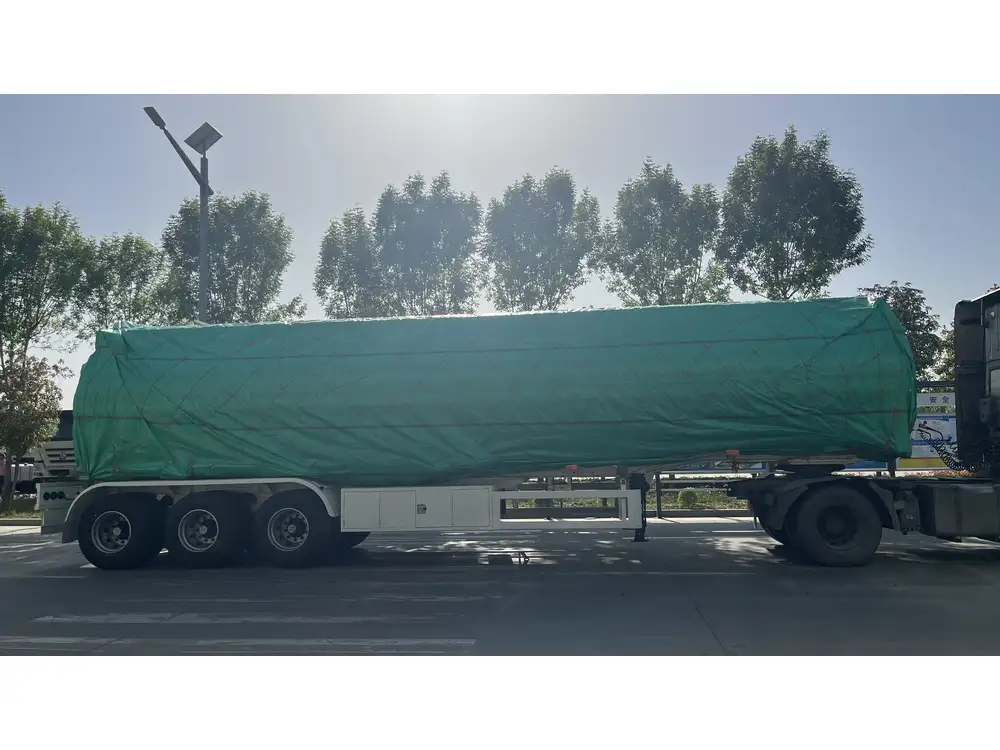
1. Determine Your Cargo Requirements
- Type of Goods: Identify whether you’re transporting perishable items, hazardous materials, oversized loads, or general freight.
- Weight and Volume: Assess the weight and volume of your cargo to select a trailer with adequate capacity.
2. Select the Appropriate Trailer Type
Based on your cargo requirements, choose from options like dry van, reefer, flatbed, tanker, or specialized trailers.
3. Consider Trailer Dimensions
Ensure the trailer dimensions comply with transportation regulations and fit within the loading and unloading areas.

4. Evaluate Build Quality and Materials
Opt for trailers constructed with durable materials and advanced engineering to withstand the demands of long-distance hauling.
5. Assess Technological Features
Look for trailers equipped with modern technology such as GPS tracking, telematics, and safety features like automated braking systems.
6. Review Customization Options
If your cargo has specific requirements, choose a trailer that can be customized to meet those needs, ensuring optimal protection and handling.
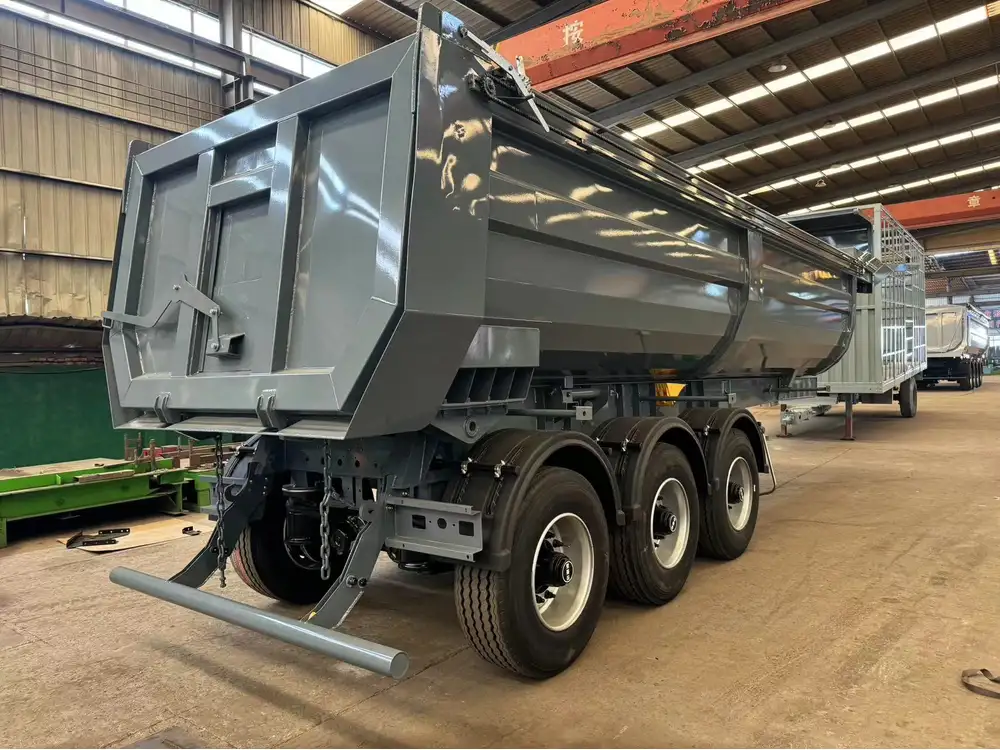
7. Analyze Cost and Value
Consider the total cost of ownership, including purchase price, maintenance, and operational expenses, to ensure you’re making a cost-effective choice.
8. Seek Expert Advice
Consult with industry experts or manufacturers like CarMax Vehicle to gain insights and recommendations tailored to your transportation needs.
Maintenance and Safety: Ensuring Longevity and Reliability
Proper maintenance and adherence to safety protocols are essential for the longevity and reliable performance of semi trucks. Here are key practices to follow:

Regular Inspections
Conduct routine inspections of critical components such as brakes, tires, lights, and coupling systems to identify and address potential issues promptly.
Preventive Maintenance
Implement a preventive maintenance schedule to perform regular servicing, including oil changes, engine tuning, and system checks, minimizing the risk of breakdowns.
Proper Loading Techniques
Ensure cargo is loaded correctly, balancing weight distribution and securing loads to prevent shifting or damage during transit.
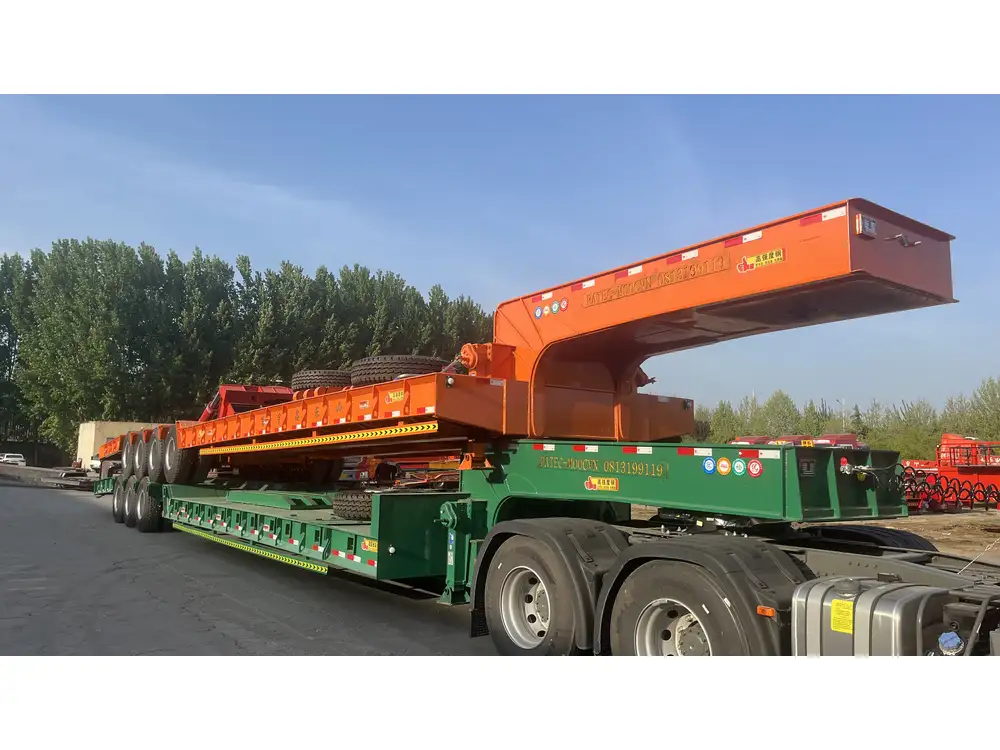
Driver Training
Invest in comprehensive training programs for drivers, focusing on safe driving practices, emergency procedures, and efficient handling of the vehicle.
Compliance with Regulations
Stay updated with local and international transportation regulations, ensuring that your semi trucks meet all legal requirements and standards.
The Future of Semi Trucks: Innovations and Trends
The transportation industry is continuously evolving, and semi trucks are at the forefront of technological advancements. Here are some emerging trends shaping the future of semi trucking:
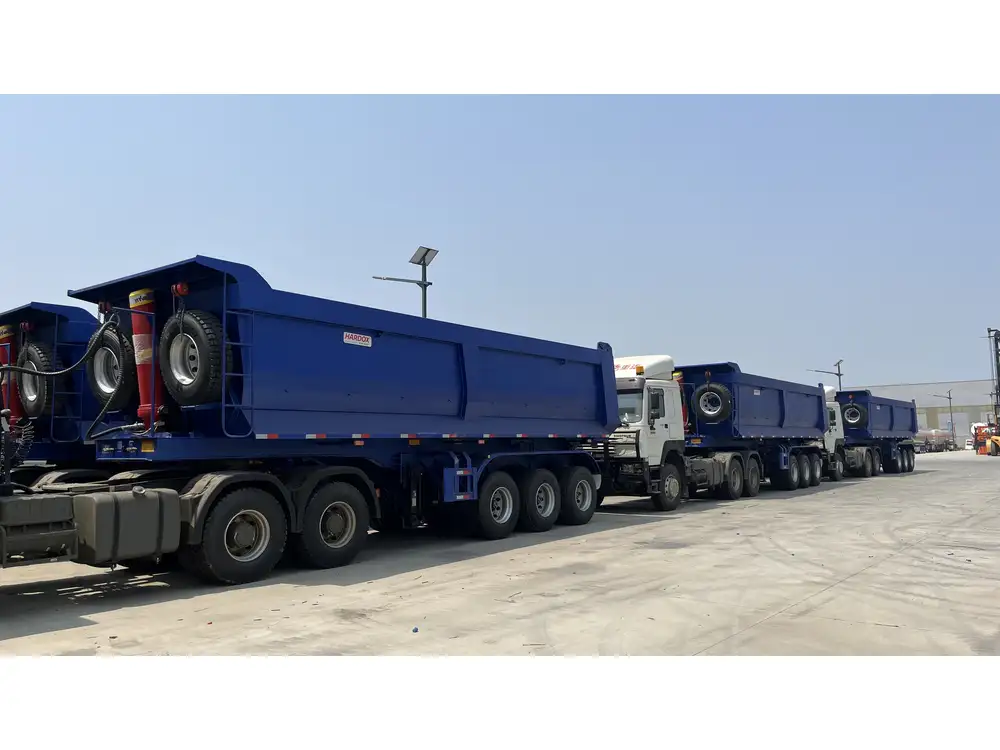
Electric Semi Trucks
With the global push towards sustainability, electric semi trucks are gaining traction. Companies are investing in electric propulsion systems to reduce emissions and reliance on fossil fuels.
Autonomous Driving
Autonomous technology is revolutionizing the trucking industry, promising enhanced safety, reduced labor costs, and increased efficiency through self-driving capabilities.
Telematics and IoT Integration
The integration of telematics and Internet of Things (IoT) devices allows for real-time monitoring of vehicle performance, cargo conditions, and route optimization, enhancing overall operational efficiency.
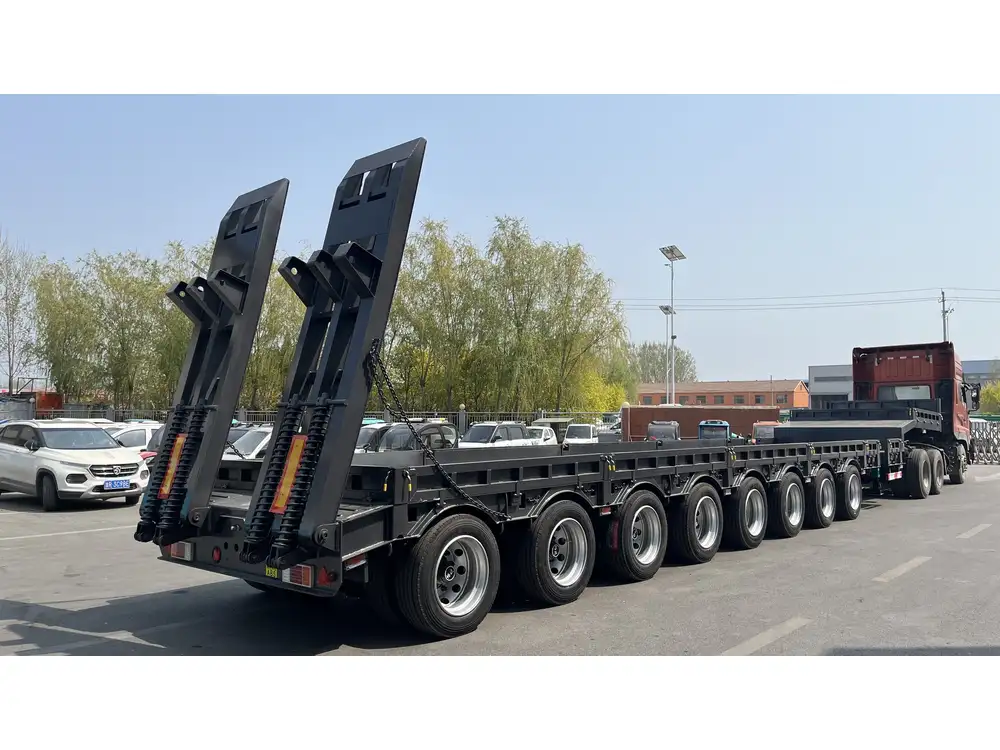
Advanced Safety Features
Innovations such as collision avoidance systems, lane-keeping assist, and adaptive cruise control are improving the safety standards of semi trucks, protecting both drivers and cargo.
Lightweight Materials
The use of lightweight yet strong materials in trailer construction is enhancing fuel efficiency and increasing payload capacity without compromising durability.
Why Choose CarMax Vehicle for Your Semi Trailer Needs
At CarMax Vehicle, we pride ourselves on delivering top-tier semi trailers tailored to meet the diverse needs of our clients. Here’s why partnering with us ensures you receive the best value:

Expertise and Experience
With years of experience in the manufacturing sector, our team possesses unparalleled expertise in designing and producing high-quality semi trailers.
Quality Assurance
We adhere to stringent quality control measures throughout the manufacturing process, ensuring that every CarMax Trailer meets the highest standards of excellence.
Innovative Solutions
Our commitment to innovation drives us to continually develop advanced features and technologies, keeping our trailers at the cutting edge of the industry.

Customer-Centric Approach
We prioritize our clients’ needs, offering personalized solutions and responsive support to ensure complete satisfaction with our products and services.
Competitive Pricing
CarMax Vehicle offers premium trailers at competitive prices, providing exceptional value without compromising on quality or performance.
Conclusion
Semi trucks are the lifeblood of global commerce, enabling the efficient and reliable movement of goods across vast distances. Understanding their components, types, and uses is essential for anyone involved in the transportation and logistics sectors. At CarMax Vehicle, we are dedicated to advancing the capabilities of semi trucks through innovative design, superior build quality, and unwavering commitment to customer satisfaction. Whether you’re looking to upgrade your fleet or seeking a dependable semi trailer, CarMax Trailer is your trusted partner in navigating the complexities of modern logistics.

Frequently Asked Questions
1. What differentiates a semi truck from other commercial trucks?
A semi truck consists of a tractor unit coupled with one or more trailers, allowing for greater cargo capacity and flexibility. Unlike rigid trucks, semi trucks can detach the trailers, facilitating easier maneuverability and efficient load distribution.
2. How do I maintain my semi truck to ensure longevity?
Regular maintenance is crucial. This includes routine inspections, preventive servicing like oil changes and brake checks, proper loading techniques, and adhering to manufacturer-recommended service schedules. Investing in quality parts and timely repairs also enhances the lifespan of your semi truck.
3. What are the benefits of choosing CarMax Trailer over other brands?
CarMax Trailer offers superior build quality, extensive customization options, advanced technological features, and exceptional customer support. Our commitment to innovation and sustainability ensures you receive a reliable and efficient trailer tailored to your specific needs.
4. Are electric semi trucks a viable option for long-haul transportation?
Electric semi trucks are emerging as a sustainable alternative, offering reduced emissions and lower fuel costs. While they are becoming more technologically advanced, factors like battery life and charging infrastructure are continually improving, making them increasingly viable for long-haul operations.
5. What safety features should I look for in a semi trailer?
Key safety features include advanced braking systems, collision avoidance technology, lane-keeping assist, proper load securing mechanisms, and real-time monitoring systems. These features enhance driver safety and protect the cargo, ensuring secure and efficient transportation.



